Just as winter ended and excitement was building for the chance to have outdoor gatherings again, we get hit with a pandemic sending most of the world into a tailspin. Now that warmer weather is here and COVID-19 restrictions are easing, can you enjoy the summertime, picnics, and foods while showing love to your body as well as your taste buds?
Yes! But not if you stick with the status quo.
Let’s start with the bad and the ugly: America’s favorite foods that compromise health (and incidentally, are also really hard on the environment).
Unhealthy Summer Foods to Avoid
Let’s start with the bad and the ugly: America’s favorite foods that compromise health (and incidentally, are also really hard on the environment).
The (Hot) Dog Days are Over
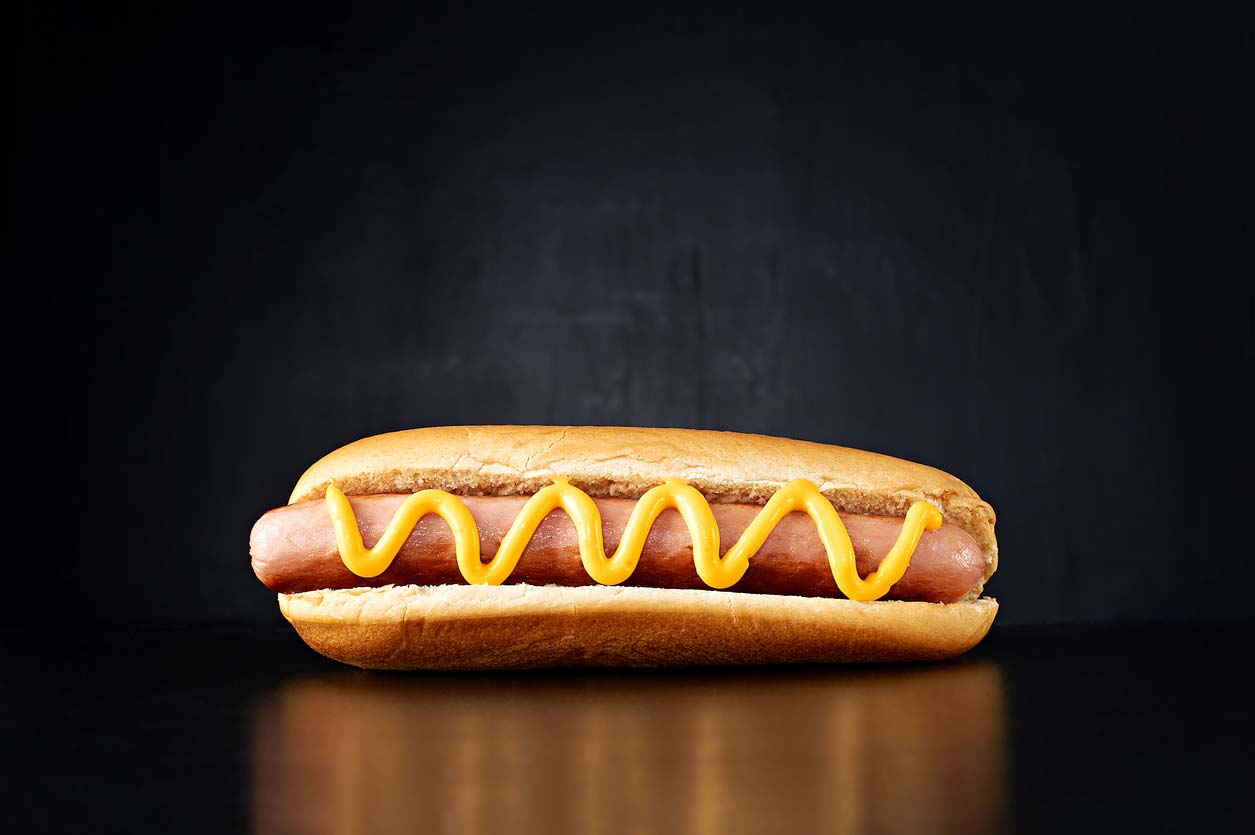
Perhaps the most famous form of summer fare is the hot dog. Americans consume roughly seven billion hot dogs each summer, between Memorial Day and Labor Day, according to USA Today estimates.
Impacts on Your Health
For starters, hot dogs, like all processed meats, are categorized as Group 1 carcinogens by the World Health Organization. If you don’t mind ingesting a Group 1 carcinogen, you’d likely also find tobacco leaves and asbestos on your plate. Just a single hot dog per day was found to increase the risk of colorectal cancer by 18%. And if you worry about the effects of cell phone usage on your children’s brains, you might be shocked to learn that eating a single hot dog per week can raise a child’s risk of a brain tumor seven times more than regular cell phone use.
Hot dogs also contribute to heart disease, and increase the risk for type 2 diabetes, partly because of their saturated fat content, but also because of the nitrates and nitrites that can damage the pancreatic cells that make insulin.
Unsettling Ingredients
Then, there’s the gross factor: hot dogs are frequently recalled due to contamination. While bacterial contamination is bad enough, other reasons for hot dog recalls have included metal shards and bone fragments. Not to mention other findings such as a dime, a white hex nut, a pill, metal shavings, a large ant, a clump of hair that might have been eyelashes, and the tip of a razor blade.
If I, personally, am to consume hot dogs, I will make certain that I purchase the organic and uncured type. And, because it is processed, I am careful not to indulge, and have it less than moderately.
Hamburger is No Helper
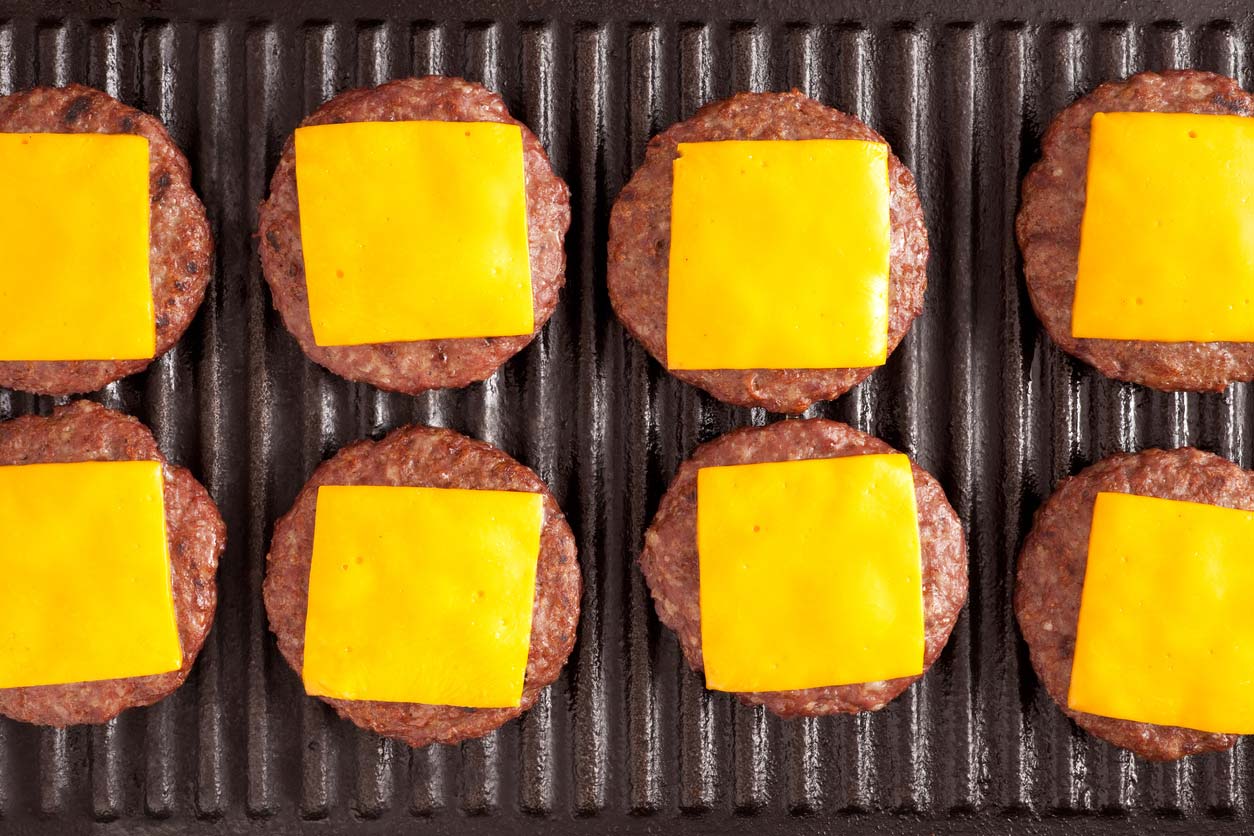
Hamburgers, the other quintessentially American grilled meat, have their own equally troubling set of problems. The estimated 375 million burgers consumed just on a typical July 4th in the US not only increase the risk of heart disease and diabetes, but also pack an extra cancer punch due to the formation of heterocyclic amines (HCAs) and polycyclic aromatic hydrocarbons (PAHs) in the grilling process. And you don’t even have to eat the burger to suffer the consequences, as these compounds become airborne in addition to clinging to the meat.
Adding in dairy-based cheese loads up even more saturated fat and sodium. A burger with all the fixings, including cheese, might have up to 1,000 mg of sodium or more, which is also almost half your daily limit.
Let the Chips Fall — Away from You
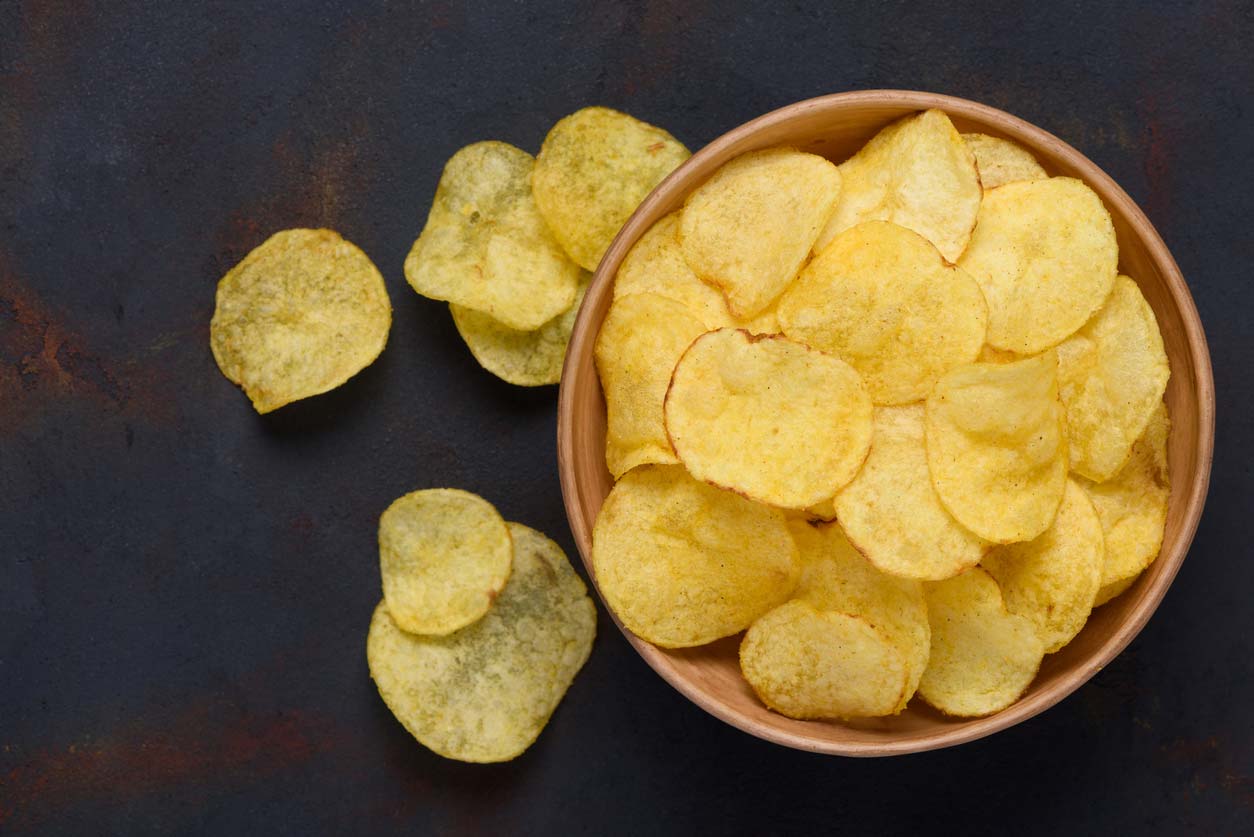
Potato chips and other fried foods aren’t about to earn a place in any healthy eating guidebooks, either. To add insult to their high fat and sodium content, many chip companies use unhealthy and genetically modified oils, or even trans fats to produce their products. And the high-temperature cooking process combined with the high starch content of the chips leads to the creation of a toxic chemical called acrylamide, which studies show can cause cancer in laboratory animals.
When in doubt, buy organic or look for the butterfly label, like this one:
Soda Problems
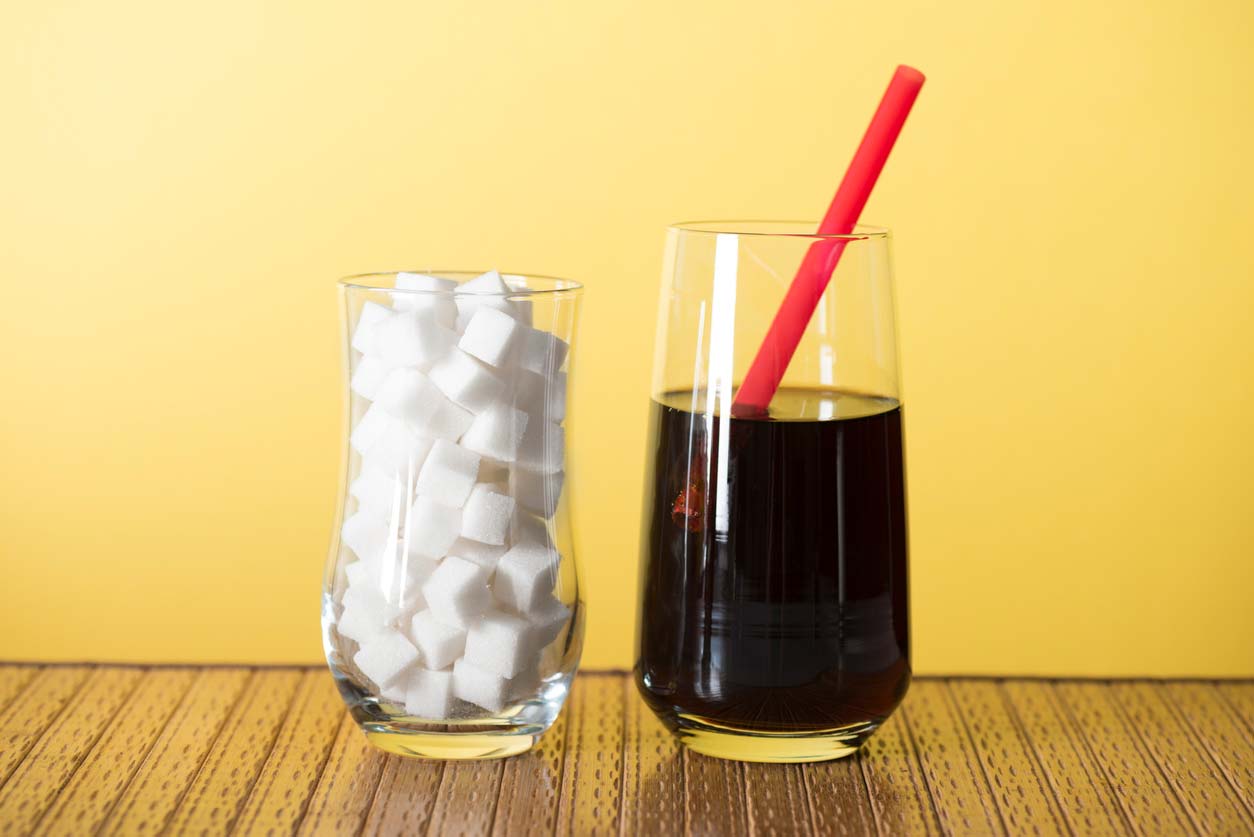
After eating high sodium-containing hot dogs, hamburgers, and chips, most people will get mighty thirsty. Unfortunately, one of the most common summer beverages of choice is soda, which is bad for you in so many ways. From rotting your teeth to increasing the risk of heart disease, to damaging your metabolism in ways that hamper fat burning and prevent weight loss to increasing the risk of cancer and asthma. And please don’t think that diet sodas are the answer either. Their artificial sweeteners can wreak havoc on your beneficial gut bacteria and may be even worse for you than regular soda.
Ice Cream is No Treat
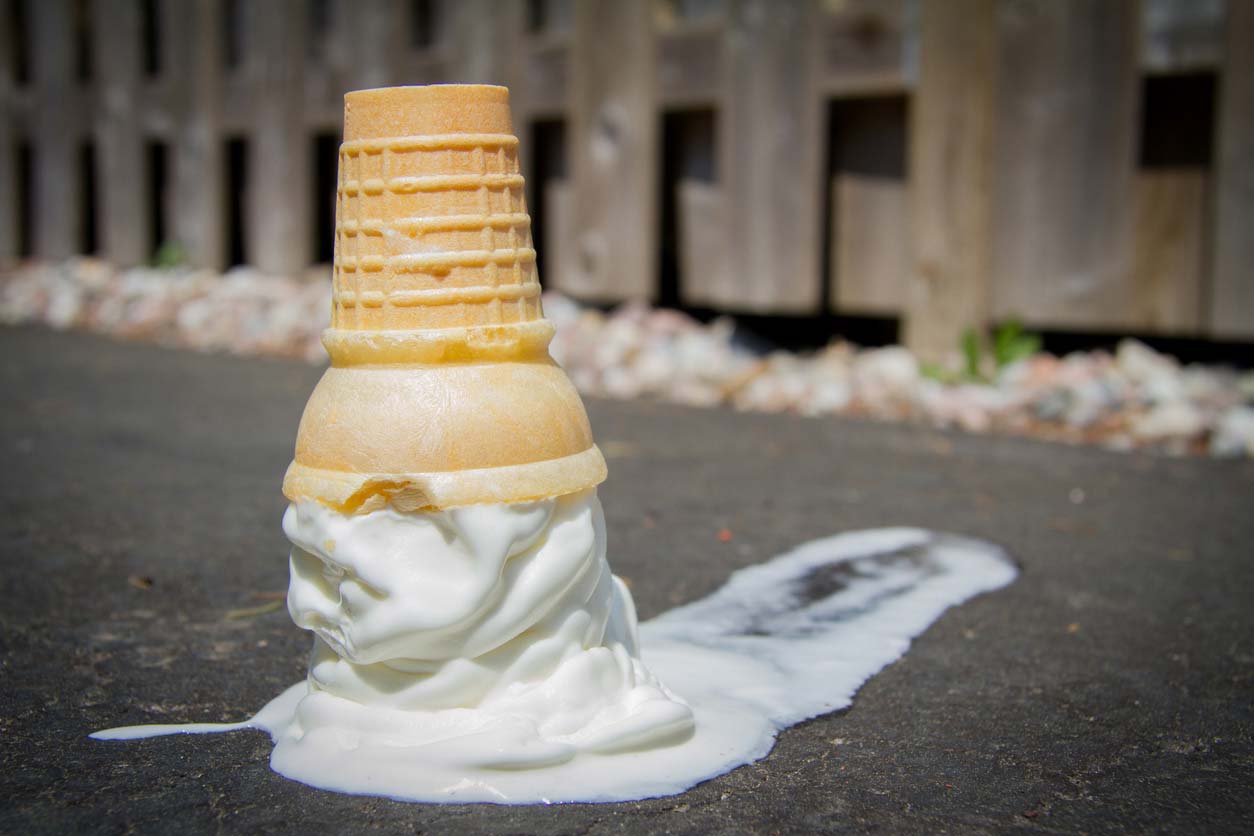
Here’s a problematic summer food that hits home for Ocean Robbins: ice cream. As you may know, his dad, John Robbins (co-founder of Food Revolution Network), walked away from his place as heir to the Baskin-Robbins ice cream empire in his early 20s, once he began to see the connections between the dairy industry and human health, animal welfare, and environmental quality.
Ice cream has plenty of ingredients that are concerning to all types of diets, plant-based eaters and keto adherents alike. Aside from the large amounts of saturated dairy fat and sugar, many ice cream brands use artificial colorings (that are linked to hyperactivity and possibly ADD/ADHD and autism as well) and “natural” flavors that are often anything but. Plus, when you consider that the average American consumes 23 pounds of ice cream each year, it’s definitely not helping our collective health (or weight!).
Booze Blues
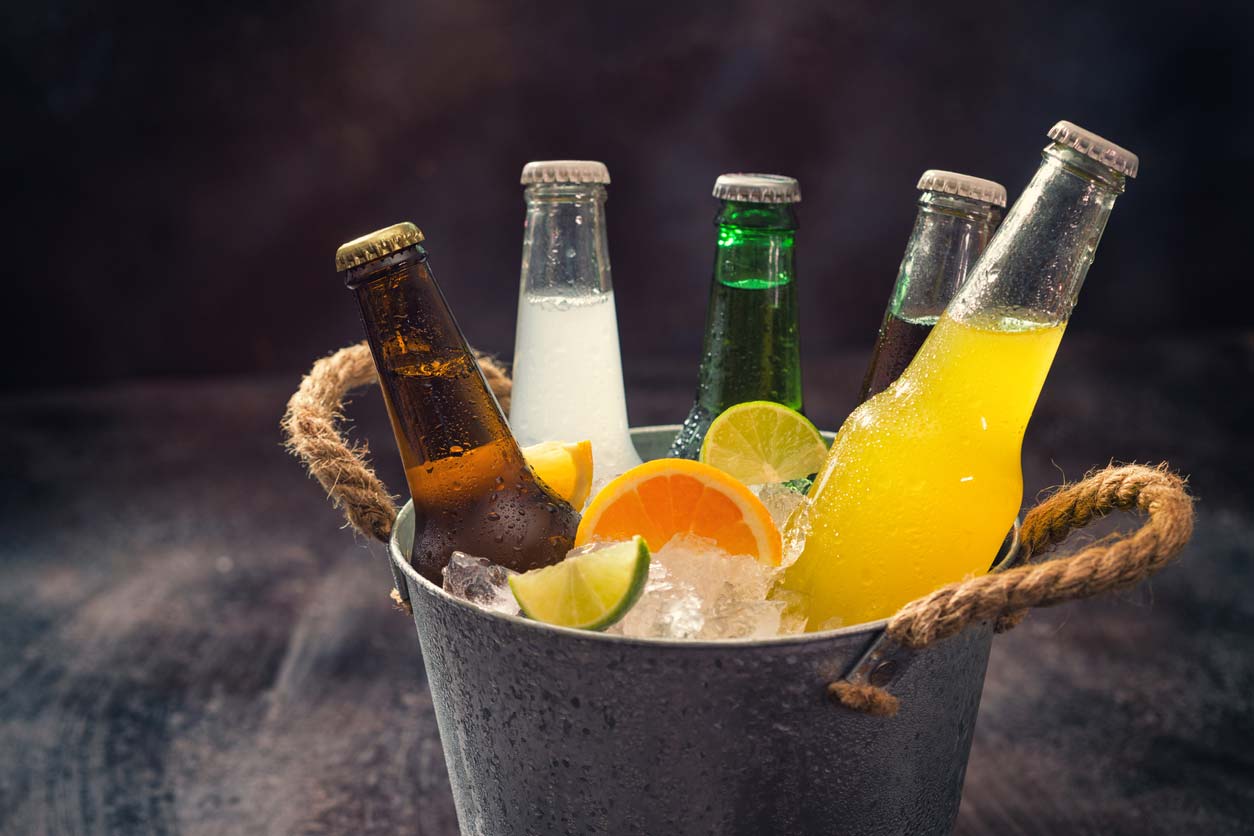
Finally, we can’t talk about problematic summer foods and beverages without mentioning alcohol. From coolers of beer to fancy drinks with umbrellas and cute names, Americans love to beat the heat and take the edge off with alcoholic beverages. There are dangers of even moderate alcohol consumption. But, here’s a list of a few of the conditions caused, correlated, or worsened by excessive drinking: Alzheimer’s and other dementias; depression and anxiety; cancers of the liver, breast, mouth, throat, esophagus, colon, and rectum; organ failure; obesity; heart disease; type 2 diabetes; and overall risk of death, including risk for alcohol-related accidents, and the list goes on.
Well, that was a depressing survey of some of the most popular summer foods on the standard American diet! Maybe we should just cancel all the picnics and stay inside and watch Netflix by ourselves instead. But not so fast! The good news is, there are plenty of delicious summer foods you can love, that will also love you back.
Healthy Summer Foods to Enjoy
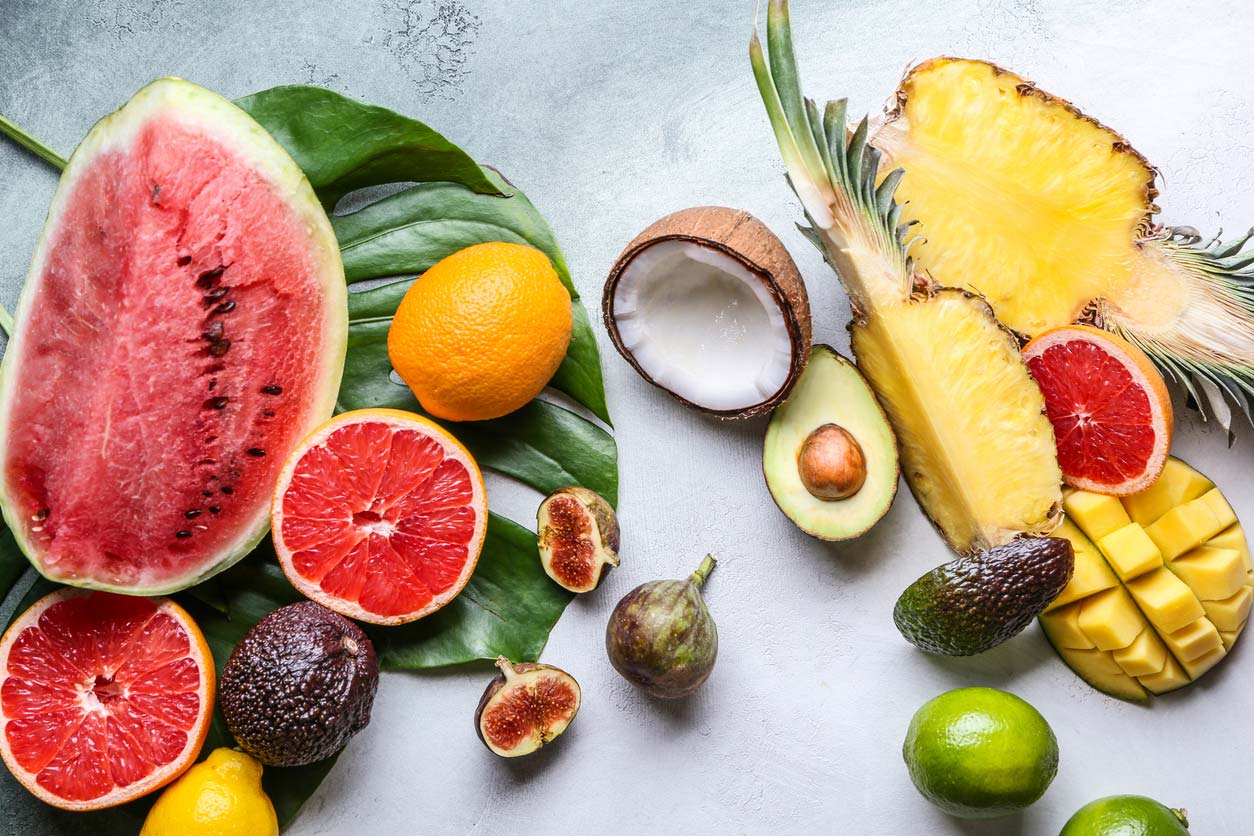
The key to choosing healthy summer foods can be summed up in a single word: hydration. The healthiest, most refreshing summer foods contain lots of water. Which is convenient since hot summer temperatures will cause you to sweat more. And, so staying hydrated is very important.
Foods with High Water Content
The best way to hydrate is by drinking lots of water. But you can also stay hydrated with foods and other beverages. Which foods? Fruits and vegetables, of course. Fruits and vegetables are so high in water that they’re, by definition, low in calories. And, of course, they’re chock full of vitamins, minerals, antioxidants, and other health-promoting phytochemicals, too.
When possible shop local, as these foods are fresher and more delicious, having the lowest carbon footprint. Simply shop at farmers markets,.
If you can, go organic too, as organically grown produce has been shown to be healthier for you, and much better for farmworkers and the environment.
If you’re looking for hydration superstars, here’s a list of foods with exceptionally high water content:
- Watermelon
- Cucumber
- Celery
- Berries
- Cantaloupe
- Tomatoes
- Peaches
- Oranges
- Lettuce
- Bell Peppers
- Cauliflower
- Cabbage
- Grapefruit
- Pineapple
Here Are Some Hydrating and Nutritious Summer Food Recipes to Try at Your Next Barbecue
Sweet and Smoky Tofu, Vegetable, and Pineapple Skewers
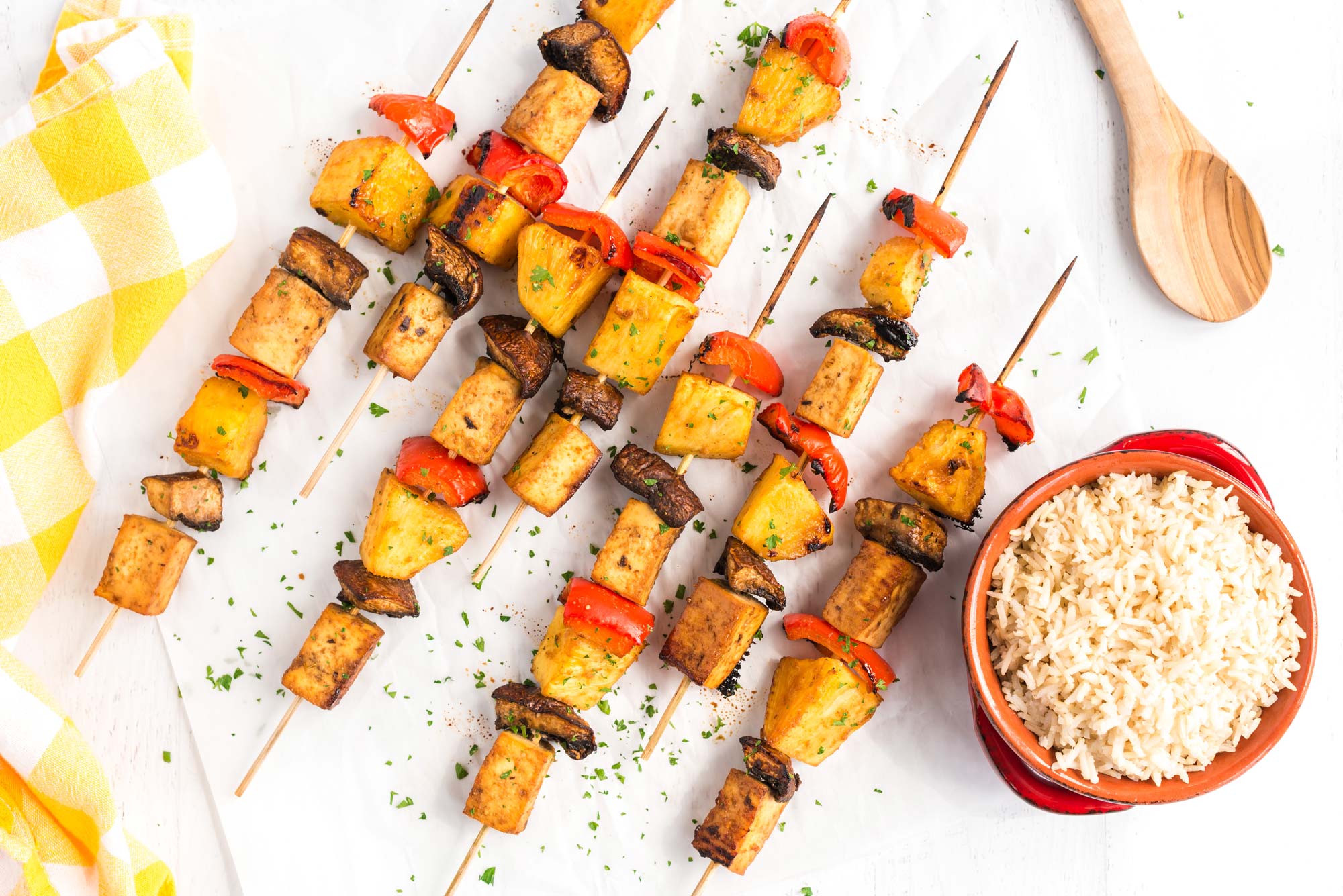
The flavors in this dish work wonderfully together, especially if you give the skewers a little time to marinate before baking or grilling. The umami flavor of the mushrooms combined with the sweet pineapple and savory tofu will satisfy all of your taste buds!
Kale Pomegranate Salad with Chopped Walnuts and Sliced Apples
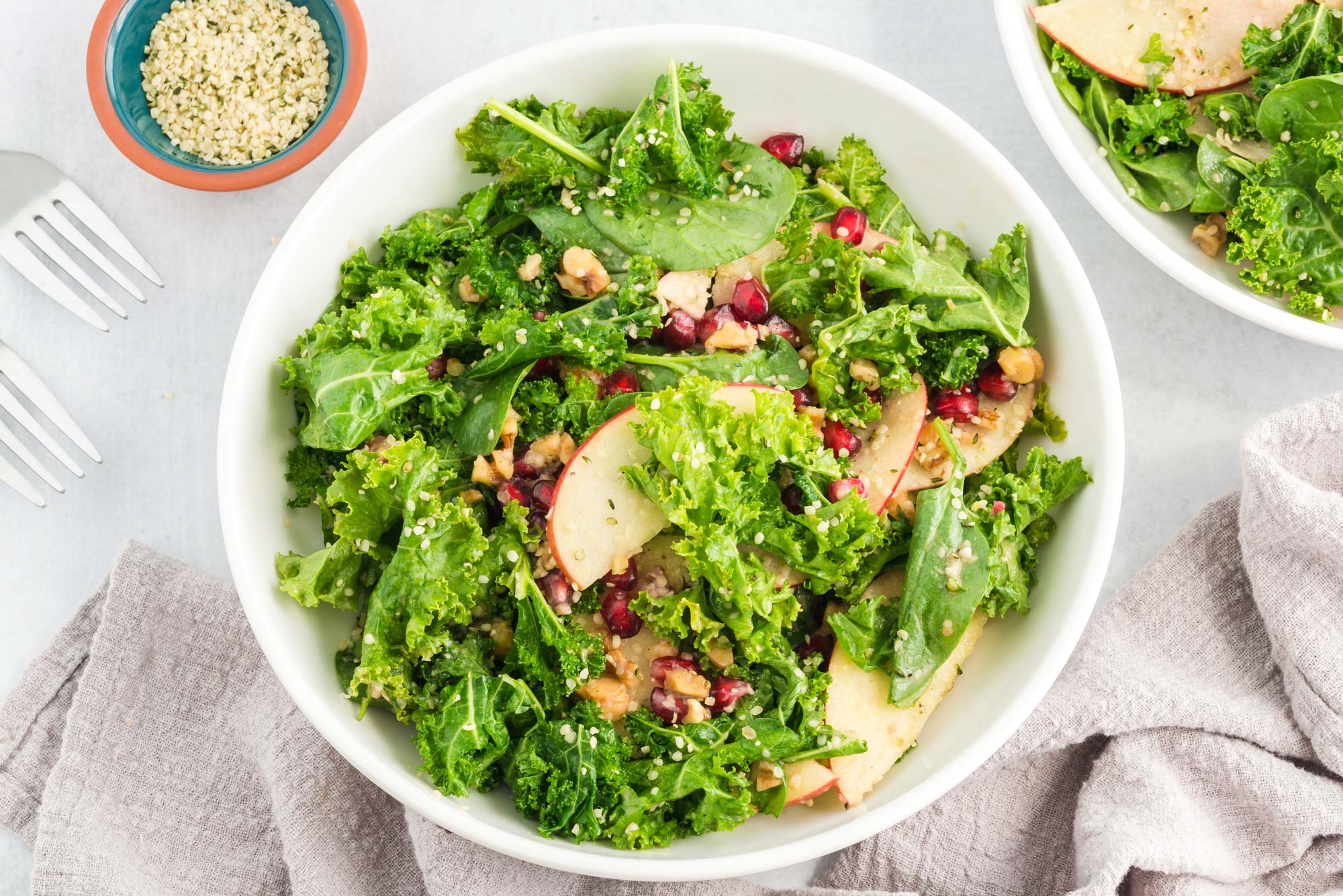
This could be labeled the most refreshing summer salad on the planet with the apples and fresh pomegranate mixed in with the kale. The dressing is nice and light — and super flavorful.
Blueberry Lemon Cooler
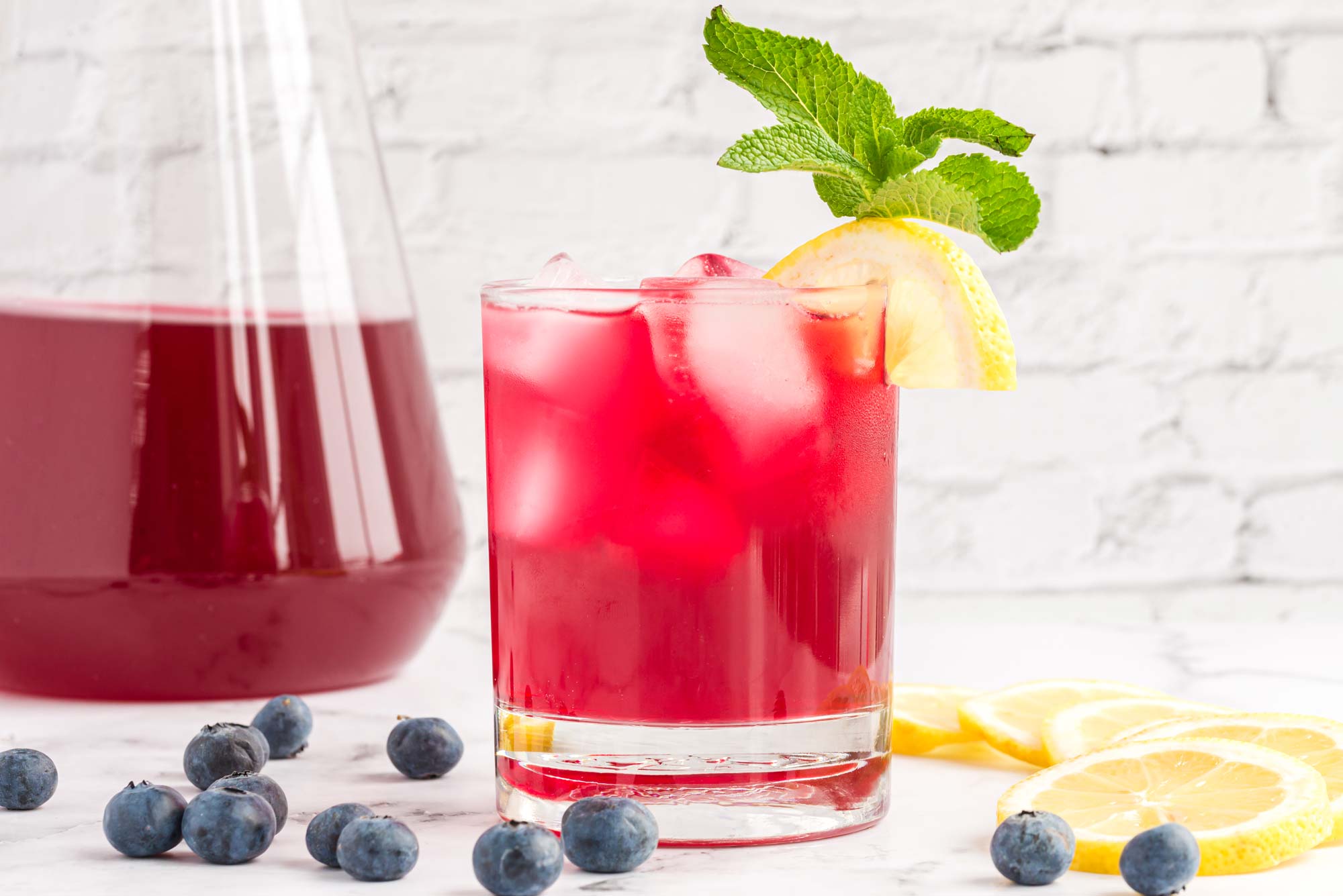
Staying hydrated during the hot summer months is essential. And adding flavorful and nourishing fruits can make it easier to get all the hydration you need. Stock up on local berries, and add a splash of vitamin-C packed lemon for a nutrient-powered and delicious alternative to water. It will add that something special to your next indoor or outdoor picnic!
In Conclusion
Summer is a great time for enjoying the outdoors — and enjoying food outdoors. Even if your summer, and your social life, look a little (or a lot) different because of the pandemic, you can still enjoy delicious, healthy, and festive summer foods safely. And if you’re able to celebrate with friends and loved ones, all the better!
Adapted from Food Revolution; All recipes by Food Revolution
